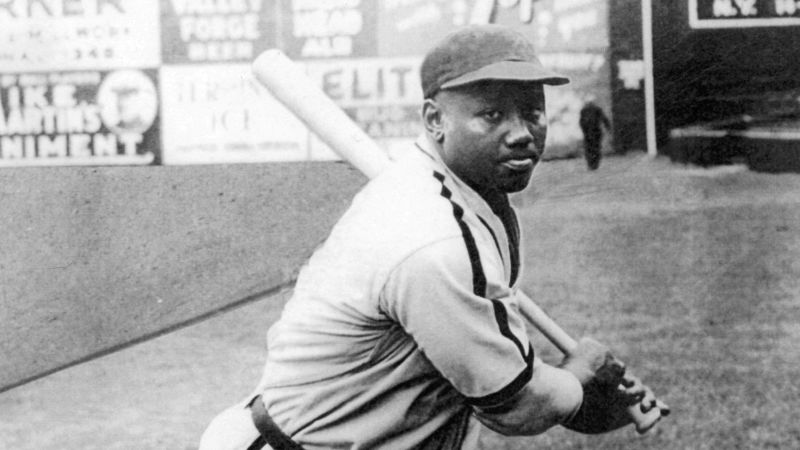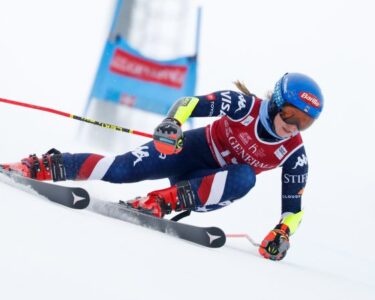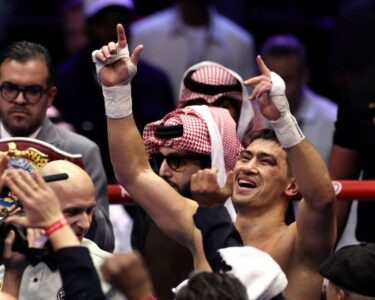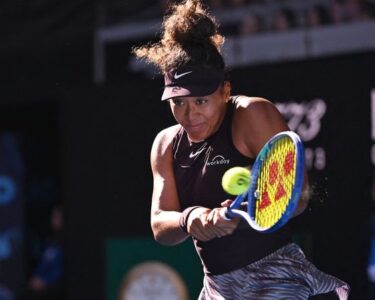CNN
—
Major League Baseball has incorporated the statistics of former Negro Leagues players into its historical records on its website, meaning legendary leaders in some categories like Babe Ruth and Ty Cobb have now been replaced in the record books by players who were not allowed to play on the same fields as them during segregation.
Josh Gibson, one of the greatest sluggers in the history of the Negro Leagues, is now listed as MLB’s new all-time career leader in batting average at .372, moving ahead of Ty Cobb at .367.
The MLB website shows Gibson also overtaking Babe Ruth in career slugging percentage.
“We are proud that the official historical record now includes the players of the Negro Leagues. This initiative is focused on ensuring that future generations of fans have access to the statistics and milestones of all those who made the Negro Leagues possible,” said MLB commissioner Rob Manfred in a statement.
“Their accomplishments on the field will be a gateway to broader learning about this triumph in American history and the path that led to Jackie Robinson’s 1947 Dodger debut.”
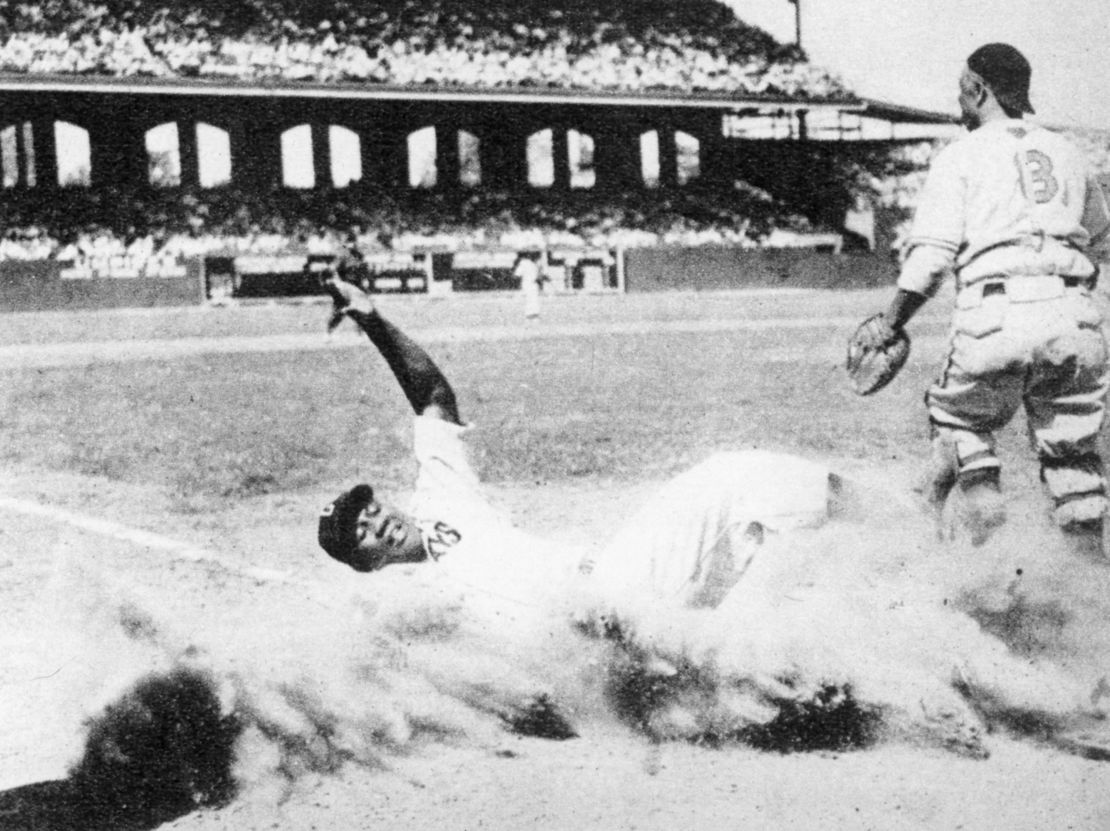
Gibson was inducted into the National Baseball Hall of Fame in 1972.
“We’re excited,” Sean Gibson, the slugger’s great grandson, told CNN. “This is a long time coming. Not just for Josh Gibson, but all the other great Negro League family members as well.”
The power-hitting catcher’s Baseball Hall of Fame plaque – he’s one of 35 Negro League stars enshrined in Cooperstown – says he “hit almost 800 home runs in league and independent baseball” during his 17-year career.
However, the majority of those homers came not in league-sanctioned games (about 50 to 75 per season) but in exhibitions played against former big leaguers and White semi-pro teams.
“This is indeed an exciting day. It was a long time coming,” Negro Leagues Baseball Museum President Bob Kendrick said at a Wednesday news conference. “It is an absolute watershed moment for both Black baseball and Negro League history.”
Kendrick continued, “You cannot reduce the story of the Negro Leagues to statistics. You just can’t.
“This story is far more grandiose than mere statistics. This story in many ways is bigger than the game of baseball.”
Kendrick also addressed baseball fans who may be upset their favorite players have moved down in some of the rankings.
“That does not diminish them,” Kendrick said. “It is just now providing some names that perhaps you should have known about before now and you’re getting the opportunity to learn about them.”
More than 2,300 Negro Leagues players from 1920-1948 were added to the MLB database as more stats are “still being discovered.”
Also, MLB career statistics for Hall of Famers like Jackie Robinson, Satchel Paige and Minnie Miñoso now reflect their Negro Leagues’ accomplishments.
For example, Robinson’s 49 hits with the Kansas City Monarchs in 1945 increase his career total from 1,518 to 1,567. Paige’s career wins total goes from 28 to 125 and Miñoso’s 150 hits with the New York Cubans raised his career total over the 2,000 hits milestone to 2,113.
This comes about three and a half years after MLB recognized the Negro Leagues as its equivalent and counted the statistics and records of thousands of Black players who played in the Negro Leagues from 1920 to the late 1940s.
Even though that recognition happened in December 2020, MLB at the time said it needed time to review how that recognition would affect MLB record books. That was in part because some statistics were still being compiled and because MLB needed to sort league-sanctioned games from exhibitions.
“Shortened Negro League schedules, interspersed with revenue-raising exhibition games, were born of MLB’s exclusionary practices,” John Thorn, MLB historian who chaired the review Negro Leagues Statistical Review Committee, said in a statement. “To deny the best Black players of the era their rightful place among all-time leaders would be a double penalty.”
Baseball historian Larry Lester, who also served on the committee, added: “Stories, folklore and embellished truths have long been a staple of the Negro Leagues narrative. Those storylines will always be entertaining, but now our dialogues can be quantified and qualified to support the authentic greatest of these athletes.
“Every fan should welcome this statistical restitution towards social reparation.”
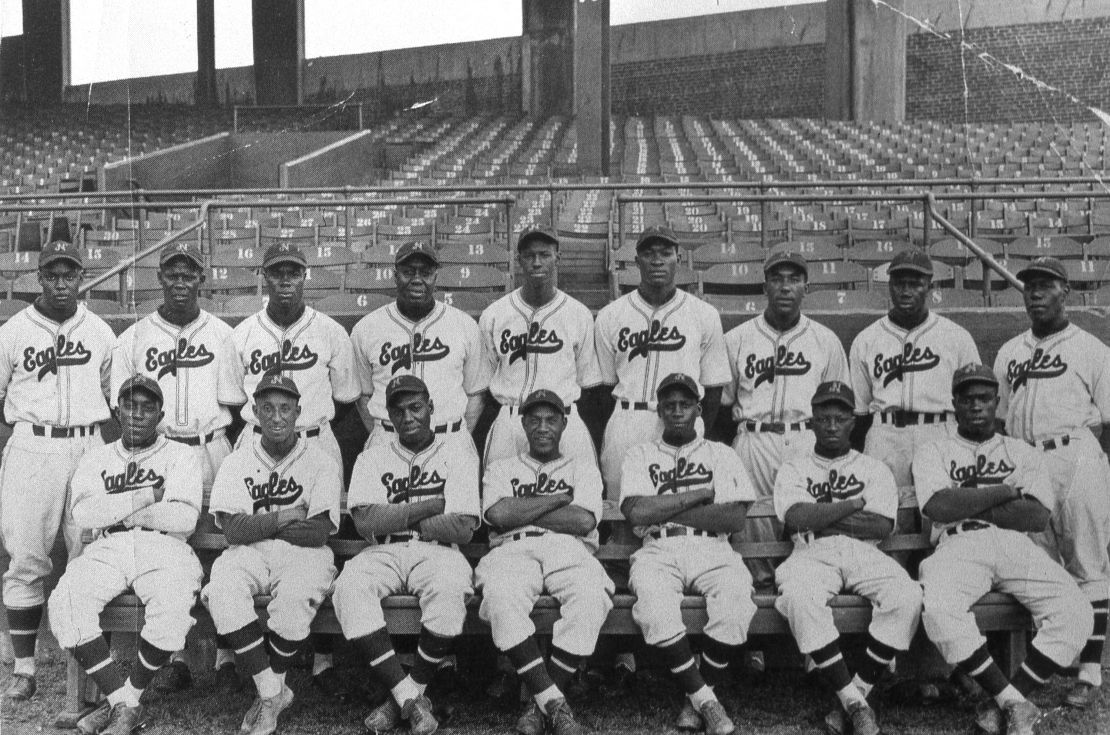
MLB in 2020 said it was “correcting a longtime oversight” by elevating the status of the Negro Leagues — which consisted of seven leagues and about 3,400 Black and Latino players from 1920 to 1948.
“Many people have heard of Martin Dihigo and Josh Gibson and Satchel Paige. But what about the thousands of other men who played in the Negro Leagues from 1920 to 1948? They’re being recognized finally as major league caliber ballplayers,” Scott Simkus, one of the researchers credited by MLB with compiling and constructing the Seamheads Negro Leagues Database, said at the time.
“Their statistical records, their careers are going to be considered equal to anybody who had played in the National League or American League during that period of time.”
“It’s sad this great history has been kept from them,” Lester, co-founder of the Negro Leagues Baseball Museum in Kansas City, said at the time.
Bob Kendrick, president of the Negro Leagues Baseball Museum, had said the recognition “serves as historical validation for those who had been shunned from the Major Leagues and had the foresight and courage to create their own league that helped change the game and our country, too.”
CNN’s Ray Sanchez and Ashley Van Sant contributed to this report. This story has been updated with additional information.


